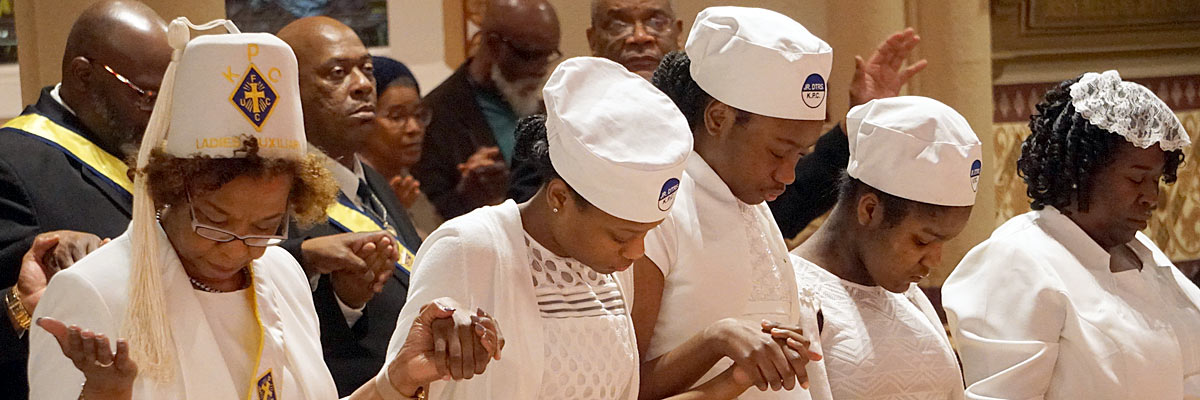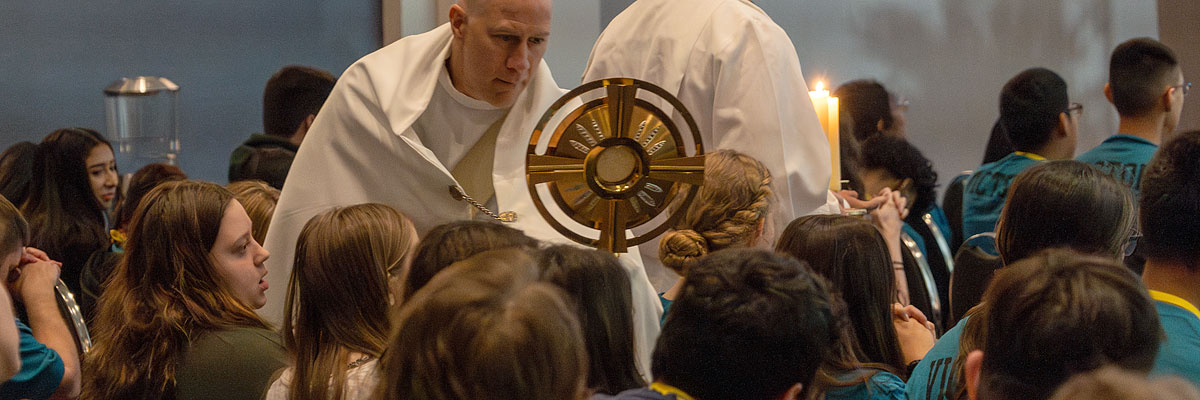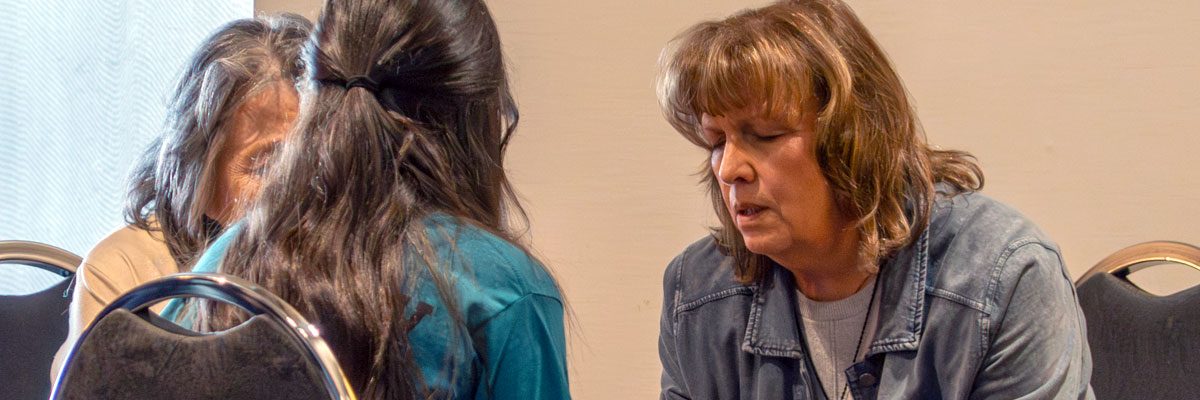Official Website of the
Catholic Diocese of Little Rock
17th Sunday in Ordinary Time, Year C
Published: July 24, 2016
Bishop Anthony B. Taylor preached the following homily during the confirmation Mass at St. Mary Church in Helena on Saturday, July 23, 2016, and at the Cathedral of St. Andrew in Little Rock on Sunday, July 24, 2016.

Bishop Taylor
In today's Gospel one of Jesus' disciples asks him to teach them how to pray and he gives them the Lord's Prayer. Today we have Luke's shorter version. But notice, the question was not so much "what" to pray as "how" to pray: "Lord, teach us to pray just as John taught his disciples."
Meaning not so much the specific words to use, but rather "what are the attitudes and concerns that we should bring to prayer?" — how to pray. And in so doing, Jesus gives us what I call the Seven "P's" of Prayer.
Many of you have already heard me speak of the Four Pernicious P's that pose such a danger to our spiritual life: the disordered pursuit of power, pleasure, possessions and prestige. Well today we have what I call the Seven P's of Prayer to help us avoid these dangers through an ever deepening relationship with the Lord.
Nowhere does God promise to satisfy all our desires because that might not serve his purposes. But God does promise to provide our most basic needs if we ask him to do so. And that's what we ask for, our daily bread, our basic needs.
The Seven P's of Prayer are: Presence, Praise, Purpose, Petition, Pardon, Protection and Persistence.
Let's look more closely at what the Lord's Prayer teaches us about the attitudes and concerns that we should bring to any prayer, no matter what words we use. And here I'm going to use Matthew's version, which is more familiar to us.
"Our Father, who art in heaven" — Presence. We begin prayer by consciously placing ourselves in God's presence, consciously reminding ourselves that we are in conversation with the Lord. If we just recite words mindlessly, we're not praying. So we begin by placing ourselves in the presence of our Father, to whom we are addressing our prayer.
"Hallowed be thy name" — Praise. Next we recall who we are before the God in whose presence we are: That he is our master and we are his servants. His name is to be hallowed, not our name. We depend on him for everything and we don't presume to know more about what is for our welfare than he does.
Job expresses this when he says: "The Lord has given and the Lord has taken away, blessed be the name of the Lord." Hallowed be thy name. We praise the Lord even in our most difficult moments not only because of who he is, but also because of who we are, his servants, and when he is glorified, we share in his glory. And so we glorify him already.
"Thy kingdom come, thy will be done on earth as it is in heaven" — Purpose. We commit ourselves to building his kingdom, not our own. To doing his will, not our own. And to do so in our lives perfectly on earth because that is how it is done in heaven.
"Give us this day our daily bread" — Petition. Many times we begin our prayers with petitions, telling God what we want him to do for us. But in the Lord's Prayer, as Jesus implies, we need to start with putting ourselves in God's presence, reminding ourselves that we are his servants and thus committing ourselves to his purposes. And only then, in that context and with all this in mind, are we in a position to distinguish our needs from our desires.
And then we proceed to ask him to provide us with all that we need. And not just in general, but all our specific needs — our daily bread. And notice that this is not everything we might desire. He fed them with daily bread — manna — in the desert.
Those 40 years were in many ways a time of privation — they missed the "flesh pots of Egypt." Nowhere does God promise to satisfy all our desires because that might not serve his purposes. But God does promise to provide our most basic needs if we ask him to do so. And that's what we ask for, our daily bread, our basic needs.
"Forgive us our trespasses as we forgive those who trespass against us" — Pardon. But we dare ask for this pardon only to the degree that we are willing to extend it to others. And without his pardon we are doomed. Remember the parable of the wicked servant who had been forgiven a huge sum but was unwilling to forgive a fellow servant who owed him a small sum?
"Lead us not into temptation but deliver us from evil" — Protection. From dangers from within — temptations. And from evils from outside of us, including disasters of every sort.
These six elements should be present any time we pray. In this Jesus is not just giving us one prayer to say — the Lord's prayer — he's also giving us a framework to guide us in all of our prayer, whatever words we use.
We should place our self in God's presence, praise him, commit to doing his will, petition him regarding our needs, pardon others and seek his protection. To these six p's Jesus adds a seventh "p" in the parable with which today's Gospel ends: Persistence.
A man who wouldn't get out of bed at midnight to help a neighbor for friendship's sake will give in and answer his request if he just keeps knocking persistently, and God the Father will do the same.
So in today's Gospel, with the addition of this parable, Jesus actually gives us Seven P's of Prayer: presence, praise, purpose, petition, pardon, protection and persistence.






